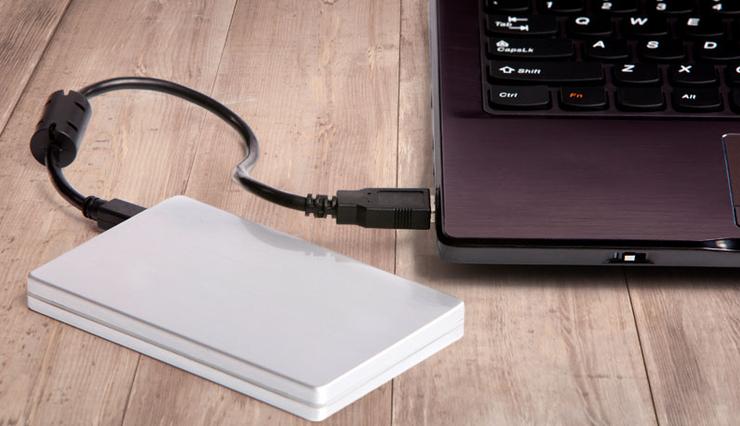The decision to buy backup software is like the old health insurance debate. Do you pay now so you’re covered in the event of an emergency, or do you skip it and hope nothing goes wrong?
Both decisions are made while things are healthy. Both involve a big financial hit if something happens and you’re not covered. And both have to be done before something goes wrong, not after.
One of the most frequent things I see is people who have opted to take the risk, didn’t get backup software, and now they’re scrambling to find a data recovery service. With their business servers fried, they’re desperate to get their data back.
But is this really the best business solution? Here are the benefits and risks of relying on either approach.
Choosing Data Recovery As Your Disaster Plan
The Pros – Low Effort
The biggest pro of using disaster recovery services as your backup plan is you don’t even need to think about your data security until something bad happens. You don’t need to have a daily or weekly backup schedule, rotating drives, or specialized knowledge. All you have to do is cross your fingers and hope nothing goes wrong. This in itself is very appealing to people.
The other benefit is there’s no immediate cost. Since you only pay when things go wrong, that means you’re not out of pocket for data protection.
As a SysAdmin, there’s another obstacle that is worth mentioning—you don’t have to sell management on why they need to buy backup software.
The Cons – Big Risks
There are a lot of cons to data recovery: some are obvious, others not. The most obvious is that if something does go wrong, you’ll be forking out 2k+ for data recovery, which is five to ten times more than paying for some backup and recovery software. Not only does this utterly eliminate any savings you made by not buying backup software, if you suffer a second or third data disaster you’ll have to pay that full upfront cost all over again.
The second con, one that is often overlooked, is that data recovery is highly unreliable. Depending on the type of data disaster you suffered, you may not even get your data back. If it was business critical data, like your customer accounts, you’re pretty much sunk.
Another problem with relying on data recovery is that it’s inefficient and costly to use these services for small data restore jobs—lost e-mails, accidentally deleted files, corrupt documents, etc. So you’re going to only use these services for large recoveries.
Data recovery also offers no protection against ransomware. If your files are encrypted and locked by malware, a data recovery service is not going to help you retrieve it. Technically the data is still there—it’s just been cryptolocked. The same is true of physically damaged drives or ones that won’t spin up—the data on these are lost to you forever.
Choosing Backup and Recovery Software As Your Disaster Plan
The Pros – Full Protection For Data
If you choose a reliable backup and disaster recovery software, the benefits of this approach are many. Not only can you safeguard your data across the board from malware, hardware and software failure, and all other sorts of threats, you can keep your servers running with minimal to no downtime. This means no interruption of business, which needless to say, costs money in itself.
Compared to data recovery services, it’s also incomparably faster. If you’re running virtual servers, you can get them back online in seconds. Meanwhile, getting your server data back may take days or weeks depending on the data recovery business and the size of the job.
Another benefit of backup software over data recovery is that you can use it for incredibly small jobs. If someone accidentally bins a file, loses an e-mail, or experiences data corruption, it’s a cinch to fix it in house and at no cost.
Backup software is also the most reliable form of protection against ransomware, even above antivirus software. Even if your data is completely compromised, you can retrieve your untouched copy so long as you had a proper backup plan in place (E.g. A 3-2-1 backup strategy). And even if the hardware is destroyed, you’ve still got the data.
The Cons – Paying For Future Protection
The main con for backup software is having to pay some upfront cost for something that may happen in the future. It’s the same thing that makes people go without health insurance.
That said, this comparison is a little faulty. With health insurance, you’ll still be admitted to hospital if something goes wrong and get the same service—you’ll just pay more for it later. There’s also premiums with insurance. But with backup software, you pay an upfront cost and no more, and you can’t get the same level of service if something goes wrong. In the end, having a safe backup of your data and cobbling together fragments of it off a dead drive aren’t comparable.
Backup Software vs Data Recovery: The Conclusion
When you put the pros and cons side by side, there’s no decision to be made—backup and disaster recovery software is just better for business. Not only is it incomparably cheaper, it provides more services, less business downtime, and better and more comprehensive data protection. It also protects you against hardware failure and ransomware, which data recovery doesn’t.
If you don’t have backup software for your business, we highly recommend BackupAssist. You can download the 30-day free trial here.







